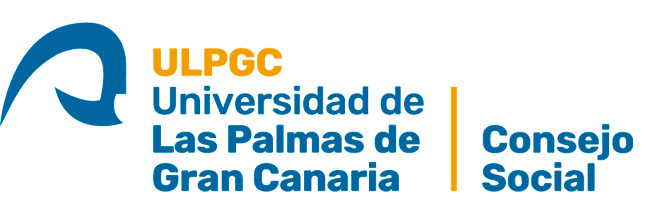The coordinator and head of science at the ULPGC Organisation for the Economic and Fiscal Regime of the Canary Islands [Cátedra REF] and author of this third volume in the collection, Salvador Miranda Calderín, has analysed the primary strengths and shortcomings of the privileges [fueros] granted to the Canary Islands.
Today, the head of science at the ULPGC Organisation for the Economic and Fiscal Regime of the Canary Islands [Cátedra REF], Salvador Miranda Calderín, was in the institutional headquarters of the University of Las Palmas de Gran Canara to present the third volume of the Organisation’s research project entitled ‘Origins and Evolution of the Economic and Fiscal Regime of the Canary Islands’. The volume focuses on the 17th Century and in it the author, Miranda Calderín, uncovers the primary shortcomings of the privileges [fueros] granted to the Canary Islands.
Accompanying the author and presenting the book at the event was the professor of history and economic institutions at the ULPGC, Santiago de Luxán Meléndez. The chairman of the Social Council, Jesús León Lima, and the rector of the ULPGC, Rafael Robaina, were also present at the ULPGC institutional headquarters.
The new volume marks the halfway point of the ULPGC Organisation for the Economic and Fiscal Regime of the Canary Islands’ research project, which has the support and patronage of the ULPGC Social Council and the Society of Entrepreneurs [Círculo de Empresarios], key driving forces behind establishing the organisation in 2014, and whose objective is to study the Economic and Fiscal Regime of the Canary Islands and to divulge this to both economic specialists and the general public. The aim is to transmit the incentive effects which benefit the public.
Salvador Miranda highlighted the “difficulty of conducting research during a pandemic”, while also underlining that the ULPGC Organisation for the Economic and Fiscal Regime of the Canary Islands was able to publish two joint reports “in the midst of lockdown”, looking at the way in which the Economic and Fiscal Regime of the Canary Islands should evolve during a pandemic. The conclusions of this were passed on to the Canary Island government and general public prior to summer. The other main undertaking of the Organisation this year is now the publication of this book, “with the conviction that only the recognition and ongoing communication of our privileges will make the Economic and Fiscal Regime of the Canary Islands understandable from the outside”, Salvador Miranda said.
The Chairman of the Social Council, Jesús León, praised the hard work of the Organisation which is already in its sixth year and headed by Salvador Miranda, who “provides the Organisation with added value given his commitment to working professionally as a tax consultant for companies and as an academic, having worked as a lecturer at both of the Canary Islands’ public universities”.
During the launch ceremony, Salvador Miranda gave a brief historical overview of the Economic and Fiscal Regime of the Canary Islands, whose origin dates back to 1507 and which had a bearing on the economic strengths of the Canary Islands during the 17th Century. Among these were “the constant licences ranted for trade with America, of which the Seville Casa de Contratación [Board of Trade] had the monopoly”. This exception was bestowed upon islands in the previous century – to the “population of the Indies” – while in the 17th Century it was granted to the “population of the Canary Islands”. This significant distinction consolidated favourable treatment within a different region, which had become a crossroads between three continents.
With regard to tax, the island councils and economic elite of the islands were able to convince the Crown not to apply two taxes to the Canary Islands: that of one ducado per barrel of wine in order to strengthen the fortresses of Gibraltar and Ceuta, and the second concerning the state monopoly on official stamped paper. The motivation behind this was to facilitate the economic development and settlement of the archipelago.
Moreover, this latest volume within the collection of the ULPGC Organisation for the Economic and Fiscal Regime of the Canary Islands also gathers the main economic weaknesses which “can be primarily seen in the many donations levied on the islands by the monarchs during this century and the establishment of the state monopoly on tobacco without opposition from the islands, because the main achievement they were always seeking was to be granted permission to trade with America”, explained Miranda Calderín.


